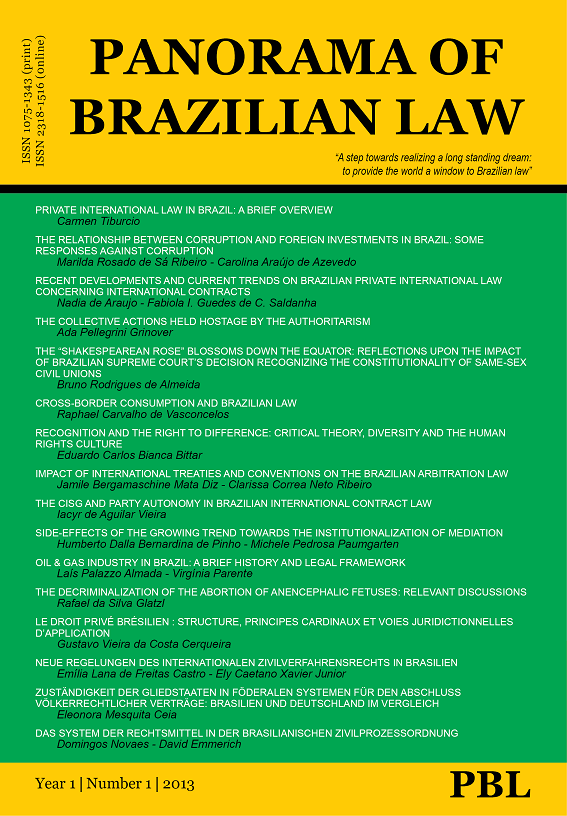CROSS-BORDER CONSUMPTION AND BRAZILIAN LAW
Resumen
The purchase of a product or service by a consumer directly abroad and the remote consumption of goods are the two main ways in which transnational consumption occurs. This new contractual dynamic – a direct result of the development of transport and communication facilities - has consequences not only for consumer protection but also for trade law. It demands from doctrine, courts and legislators an effort to solve problems arising therefrom. Important lessons can be learned from the application of economic theory to law among the difficulties to fit private international law to constitutional principles. New paradigms proposed by the courts in recent years brought great expectations in the national legal system to the evolution of consumer protection concerning international trade. Theoretical developments are now necessary to elaborate regulatory proposals under trademark and corporate law - with particular attention to financial institutions - so as to grant greater protection to the vulnerable consumer assuring security and predictability to the system, which are essential to the correct operation of the market.Descargas
Publicado
2013-05-30
Cómo citar
Vasconcelos, R. C. de. (2013). CROSS-BORDER CONSUMPTION AND BRAZILIAN LAW. PANORAMA OF BRAZILIAN LAW, 1(1), 119–138. Recuperado a partir de https://www.e-publicacoes.uerj.br/pbl/article/view/34362
Número
Sección
Articles
Licencia
Panorama of Brazilian Law employs Open Journal Access policies.
Authors are fully and exclusively responsible for their submissions.
Authors who publish with this journal agree to the following terms:
- Authors retain copyright and grant the journal right of first publication with the work simultaneously licensed under a Creative Commons Attribution-NonCommercial-ShareAlike 4.0 International License that allows others to share the work on a non-comercial basis with an acknowledgement of the work's authorship and initial publication in this journal and indicating if any changes were made. If you remix, transform, or build upon the material, you must distribute your contributions under the same license as the original.
- Authors are able to enter into separate, additional contractual arrangements for the non-exclusive distribution of the journal's published version of the work (e.g., post it to an institutional repository or publish it in a book), with an acknowledgement of its initial publication in this journal.

